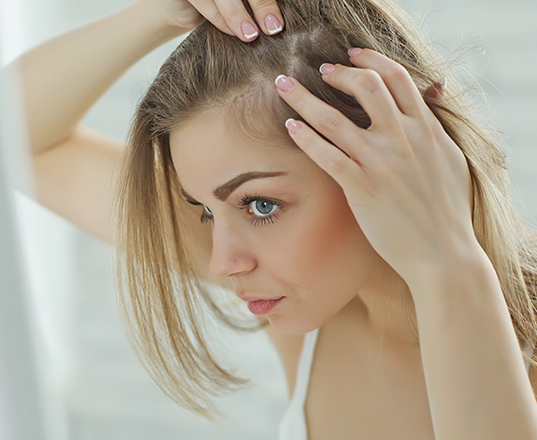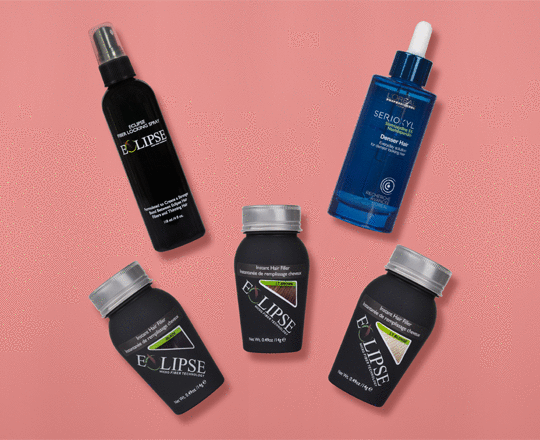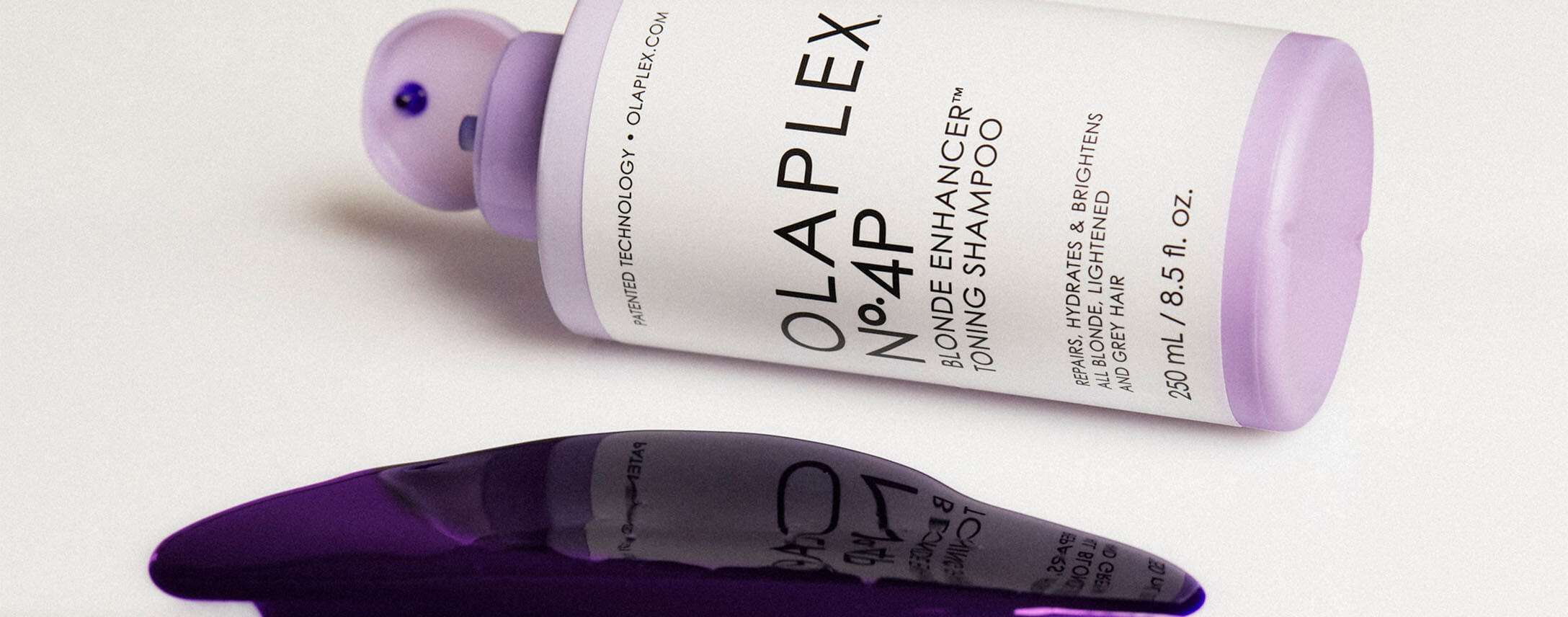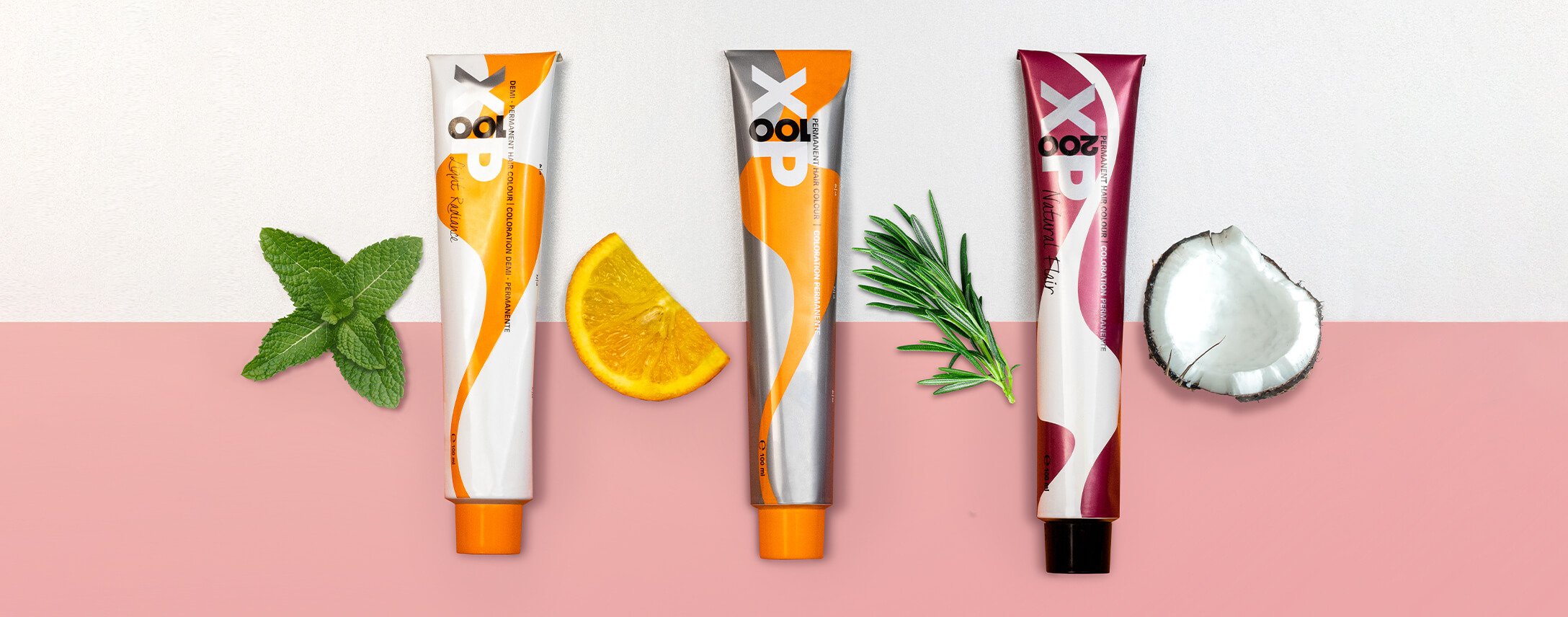How do I support my client with female hair loss & thinning

How do I support my client with female hair loss & thinning?
Experiencing hair loss & hair thinning can be really difficult. As professionals, we don’t just look after our client’s hair, we also care about their wellbeing. Education on this topic for hairdressers is minimal, so it can be difficult to support and advise clients when it occurs.
We’ve enlisted the help of Jasmin Julia Gupta, Hair Loss Expert to recommend the ways you can support your client through their experience with hair loss & thinning.
Identify the cause

A large number of women will experience some form of hair loss and regrowth over a lifetime. There are many different reasons why hair loss may be experienced by women:
- Pregnancy & menopause:Fluctuations in hormones that affect the sensitive hair growth cycle.
- Chemotherapy:Not all chemotherapy drugs cause hair loss as a side effect. There is a prevention treatment called scalp cooling that can sometimes be offered to try and prevent hair loss on the scalp.
- Nutritional deficiencies:What you eat and how your body absorbs and distributes essential vitamins, glucose and proteins is very important in maintaining the regular hair growth cycle.
- Environmental & styling strain:The environment we live in, our lifestyle and how we style and treat our hair can all have a negative effect and even cause hair thinning and hair loss.
- Underlying medical issues:As well as side effects to medicines sometimes hair loss can be a result of underlying health issues.
If your client is concerned about any underlying health issues, you should always recommend they consult with their doctor.
Support emotionally
Hair loss is often a big concern for women. You are a great source of information and support for your clients because as a hair and beauty professional you are someone who your client is likely to confide in.
Keep a list of links to further information and research local support in your area that you can pass on to help your client feel less alone.
Also be sure to also know your limitations, if you suspect a medical reason behind the hair loss, always recommend your client consults with their doctor.
Connect to support through the links below:
- Alopecia UK
Alopecia UK is a charity that aims to provide information, advice and support for people covering a broad range of hair loss related topics. They also offer support groups throughout the UK. - Alopecia Awareness
Alopecia Awareness is a charitable organisation with a website designed to enable people with hair loss to educate themselves. It says the most important thing to remember is that ‘You are not alone’. - Cancer Hair Care
Cancer Hair Care is the UK’s leading cancer hair loss charity offering advice, services and a helpline dedicated to helping people before, during and after cancer treatments. They also offer free headwear, booklets and educational toys and tools. - Little Princess Trust
A charity that provides human hair wigs free of charge to children experiencing hair loss due to cancer treatment. - My New Hair
A charity providing education and training to hairdressers and giving support to those who suffer medical hair loss and who require natural looking wigs. - NHS Choices
NHS Choices is the UK's biggest health website. They offer extensive medical guidance about a vast range of hair loss topics and related medical issues. - The Institute of Trichologists
The Institute of Trichologists is a professional body. Registered members who have completed the professional qualification can provide specialist advice for hair problems including wigs, hair transplants, hair loss, alopecia, receding hair, baldness, hair thinning and hair growth.
Boost their confidence
Having a stock of products that conceal and camouflage sparse areas is a great way for your client to sample new products. It’s a good idea to try products prior to washing hair. This way clients can try without feeling committed.
Additionally, hair pieces or wigs can be provided, often with financial support if hair loss is due to a medical condition or side-effect to medication. To access this support, advise your client to speak with their doctor.
Hair replacements and hair transplants may be another option. If the hair loss affects facial hair like eyelashes & eyebrows, beauticians can recommend a variety of ways to help if the client so wishes.
Shop our range of Hair Loss & Thinning products which is categorised in to Camouflage, Maintenance, Regrowth and Prevention.

For more information and to learn about products for hair loss & thinning visit the Hair Loss & Thinning information page on our website.
Share your advice to help more people get to grips with hair loss & thinning

